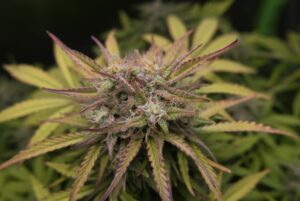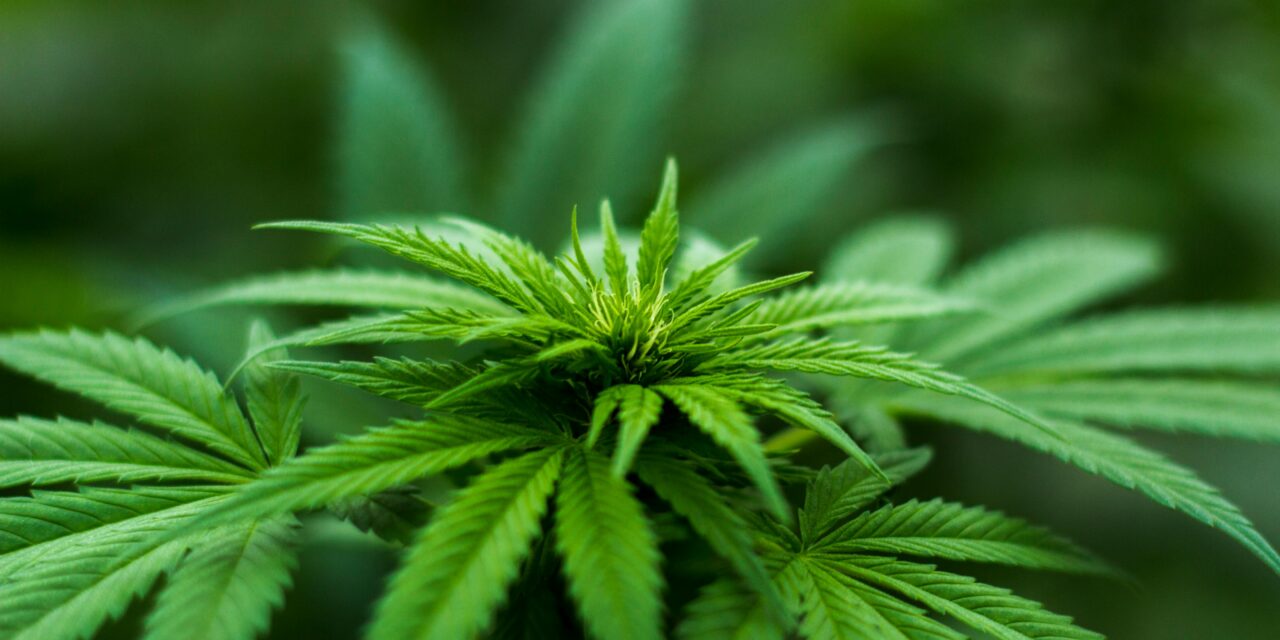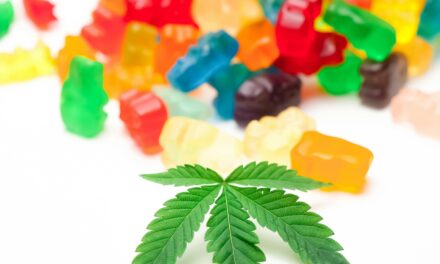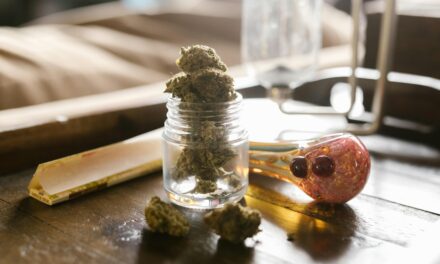CBN vs CBD: CBD (Cannabidiol) is one of the primary non-psychoactive cannabinoids found in hemp, as well as in cannabis. An interaction occurs with the body’s endocannabinoid system, which involves receptors that participate in regulating matters of inflammation, anxiety, pain, and sleep. CBD has been approved for pharmaceutical use in the treatment of epilepsy under the trade name Epidiolex, and for inflammation, anxiety, pain, and antioxidant benefits.
On the other hand, CBN is a decomposition product of THC. As THC is aged, oxidized, or heated, it converts into CBN. First isolated in 1896, a flexible psychoactive, although much less potent than THC.
Chemical Origins & Availability: How They Happen Naturally
- CBD is formed in the plant from its precursor CBDA and is abundantly found in hemp strains.
- CBN is a secondary compound, forming only when THC breaks down over time.
- Hence, you have a wide array of regulated CBD products (oils, capsules, gummies). CBN products, on the other hand, value a more niche approach and often come with a heftier price tag, being sourced from aged cannabis or broad-spectrum hemp extracts.
Psychoactivity & Safety: CBN vs CBD
CBD: Completely non-psychoactive; never gets you high.
CBN: There is very mild psychoactivity at very high doses, and it’s nowhere near that of THC. It’s closer to a feeling of deep relaxation.
Both compounds share generally good safety profiles. With limited side effects observed in controlled doses and few interactions, it is prudent that users check with a healthcare specialist, of course, I recommend.
Sedation & Sleep: CBN’s Edge
Sedative opportunity is one of the salient differences between the two:
- Expert sources suggest it has stronger sleep-promoting effects than CBD.
- California edible sales report a tremendous increase of 525 percent in the use of CBN for sleep aids since 2020—up from 4 percent to 25 percent of market share, sfgate.com.
- Early clinical trials suggest only modest benefit in improving sleep, and CBN alone sometimes has no notable advantage, suggesting that perhaps the best efficacy might be had from products combining CBN with CBD, and even trace amounts of THC.
CBN is more sedative, and if sleep enhancement is the goal—say, for recovery after a match—it is something worth considering.
Inflammation, Pain & Muscle Recovery
- CBD:
It has well-known antibacterial, antimycotic, and anti-inflammatory properties; prevailing scientific evidence supports its ability to lower inflammatory markers and thus favor muscle recovery ▶ nevertheless, results are not always consistent.
A narrative review implied that CBD may be useful to address fatigue and muscle damage in athletes, although the necessity remains for more high-quality RCTs.
- CBN:
Less studied in this domain, but suggested by preclinical studies to have Gram-positive antimicrobial and anti-inflammatory properties.
Some users speak of mild analgesic effects, mostly when combined with CBD
Though those effects remain mostly anecdotal.
Bottom line: CBD is the principal compound, backed by science, for inflammation and recovery; CBN may play a supporting role, especially in compound blends.
Mental Health, Anxiety & Focus
- Cannabidiol (CBD) has been broadly recognized for anxiety relief and mood stabilization. Studies showed that those experiences include 79 percent of users with reduced anxiety, while 67 percent had better sleep.
- CBN’s effects on anxiety are messier: While anecdotes point toward calming effects, rigorous clinical data are sparse.
From the perspective of an athlete who might be confronted with performance anxiety or needs clarity, CBD is the cannabinoid of choice. While CBN might add a shade more relaxation, it is far less likely to have a significant impact on concentration.
Psychoactive Interaction-And the Entourage Effect
More interest is in combining multiple cannabinoids and terpenes in one formulation to maximize the ‘entourage effect.’ In particular:
- CBD could dial down the psychoactive qualities of THC.
- CBN could intensify the sedating effects of THC.
These products are yet to hit the market in full force due to regulatory troubles and the difficulty of achieving precision dosing. But athletes must watch out for any THC, given anti-doping rules: Even tiny traces could be hazardous.
Scientific Comparisons: Summary of CBN vs CBD
| Feature | CBD | CBN |
|---|---|---|
| Psychoactivity | None | Mild at high doses |
| Sleep/Sedation | Moderate potential | Stronger sedative effects |
| Inflammation/Pain | Anti-inflammatory, mixed results | Potential relief, limited research |
| Anxiety/Mental Health | Proven anxiolytic | Limited evidence |
| Availability | Abundant, affordable | Scarce, expensive |
| Regulation | Legal from hemp (<0.3% THC) | Legal if <0.3% THC; less regulated |

What This Means for Athletes & Sports Performance
- Recovery Enhancing Practices After Workouts:
Small effects to minimize DOMS and enhance muscle performance could be advertised for CBD in its anti-inflammatory benefits, yet the signs for increased VO₂ max and average power, accompanied by mixed results for strength, indicate some shades of grey. - Improvement in Sleep Quality:
Being interwoven with tiredness and recovery, sleep is of utter importance. CBN develops promise-mostly if combined with CBD-far-and-wide headline research is still preliminary. The California market trend proves persuasive but not conclusive. - Mental Readiness:
CBD is an excellent anti-anxiety treatment for competition stress. CBN might aid in relaxation, but it might be too sedating, resulting in grogginess on game day. - Pain Management:
Topical application or oral ingestion of CBD Vape could relieve pain. Here, CBN’s role is still unclear, perhaps a complementary one.
Practical Takeaways & Athlete-Friendly Protocols
-
Goal Definition:
- Faster recovery? Begin with CBD.
- To sleep well, the person should opt for a CBD+CBN blend with micro-dosing of CBN.
- Both? A full-spectrum supplement that contains both could be synergistic.
2. Dosing Strategies:
- CBD: For athletes, most administered doses span between 20 and 50 mg/day. Start from a low dose (10-15 mg) while observing the response; then increase or decrease accordingly.
- CBN: Low-dose CBN is extremely potent yet not much studied. Being cautious would mean an intake of 2-5 mg at bedtime.
3. Form Matters:
- Topicals can be applied for localized pain/inflammation.
- Tinctures and capsules are best taken by mouth to address systemic effects, such as for sleep or daily recovery.
- CBN gummies are increasingly popular, particularly in states where cannabis is legal.
sfgate.com.
4. Considerations on Product Quality & Legality:
- Keep well below 0.3% THC to keep within hemp legality.
- Preferably ask for 3rd-party lab test results for cannabinoid content and checks for contaminants such as heavy metals/pesticides.
- Isolate or full-spectrum? Isolates allow you to avoid any potential residues of THC, whereas full-spectrum might present more robust effects through the entourage effect.
5. Considerations on Timing:
CBD: post-workout, mid-afternoon for recovery, mood stabilization, and pre-bed for anxiety and sleep.
CBN: 30 to 60 minutes before sleep makes good sense, especially as a blend for increased benefits.
Case Example: A Track MVP’s Protocol
Meet “Jess,” a middle-distance runner:
- Training load: 7× weekly runs + 3 sessions of weightlifting
- Challenge: muscle soreness, occasional insomnia, pre-race jitters
Suggested regimen:
- Post-run (evening): 25 mg CBD capsule for inflammation + stress
- Night before race: 10 mg CBD + 3 mg CBN tincture for a restful sleep
- Topical CBD as needed for sore knees or hamstrings
Why it works:
- Works on both body and mind
- CBN supports sleep without grogginess
- CBD supports inflammation, anxiety, and pain
What the Research Still Needs
- RCTs maintained at the highest level should be held to assess the performance outcomes with CBD, CBN, and their interaction.
- Long-term safety studies, especially in the case of athletes taking their intake daily
- Sleep-centered studies of CBN in athletic populations
- Dose-response protocols for determining the best micro-dosing regimen
Final Thoughts: CBN vs CBD in Sports
- CBD is accepted for use in recovery, inflammation, anxiety, and even general health, albeit a bit mildly.
- CBN is almost another way of saying sleep + relaxation, especially amid soaring demand (525% market growth in California).
- For athletes and weekend warriors, the strategic blend of CBD as the foundation and low-dose CBN at night gives you a fairly balanced, working, and legal tool in your performance arsenal.
✔️ Ready to Try?
- Start to purchase well-made CBD or CBD+CBN products, preferably full-spectrum and with verified lab reports.
- Start with small doses (i.e., 10–20 mg CBD and 2–5 mg CBN).
- Track the effects: soreness, quality of sleep, mood, and functioning the next day. Every day, rate these factors on a scale of 1 to 10.
- Increase or decrease the dosage slowly, but never go beyond the legal THC limits.
- Always consult your sports medicine physician to take into consideration contraindications with other medications or doping regulations.
In Summary
- CBD and CBN are not adversaries but complementary potentials.
- Recovery investments pay themselves back: better sleep equals greater performance.
- Always check for quality, dosage transparency, and legality.
With every advancement in sports science, greater clarity shall become evident, and perhaps new cannabinoid stars may emerge. For now and for athletic recovery, CBD is the core, with CBN as a worthy nocturnal partner. Need specific product suggestions or dosing guides? USA Sports Feed will be happy to help-all you have to do is leave us a comment!
Information provided here is for informational purposes only. This is not medical advice. Always seek the counsel of professionals before trying cannabinoids, and make sure they are within your sport regulations and local laws.





